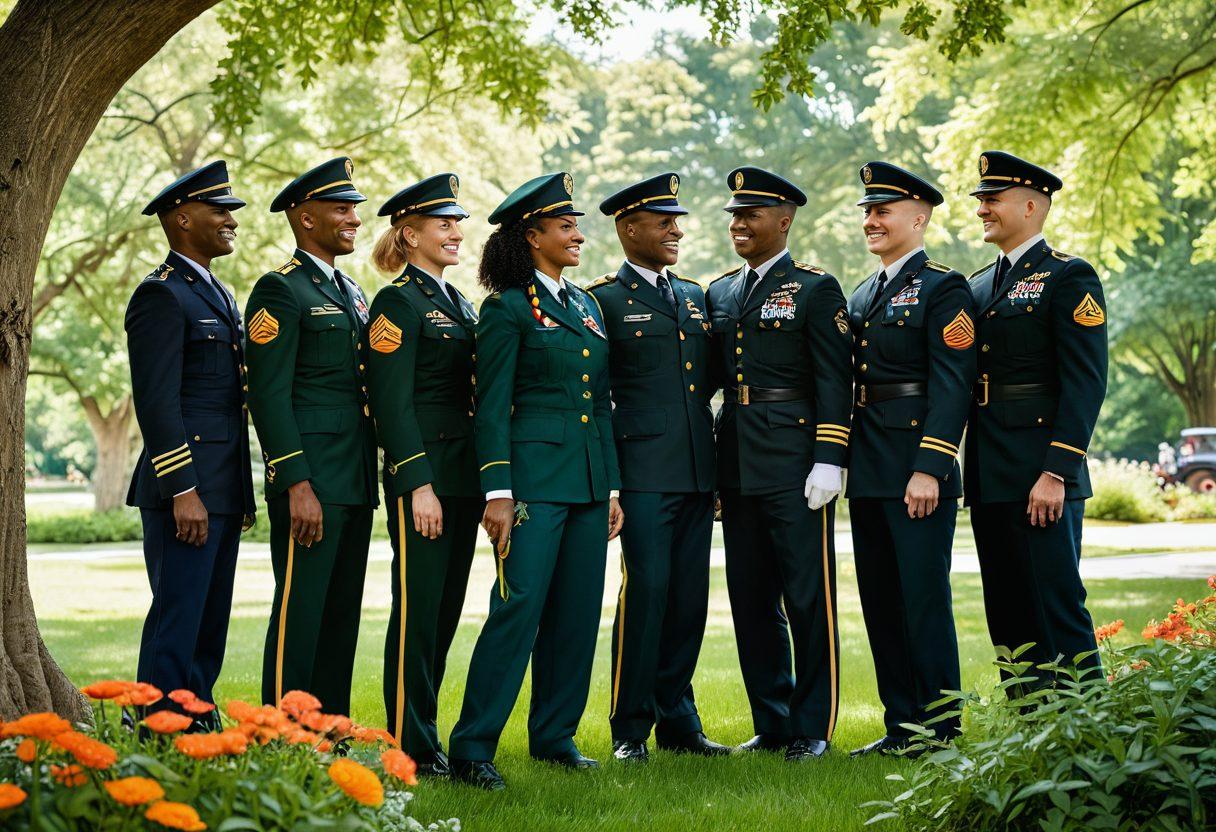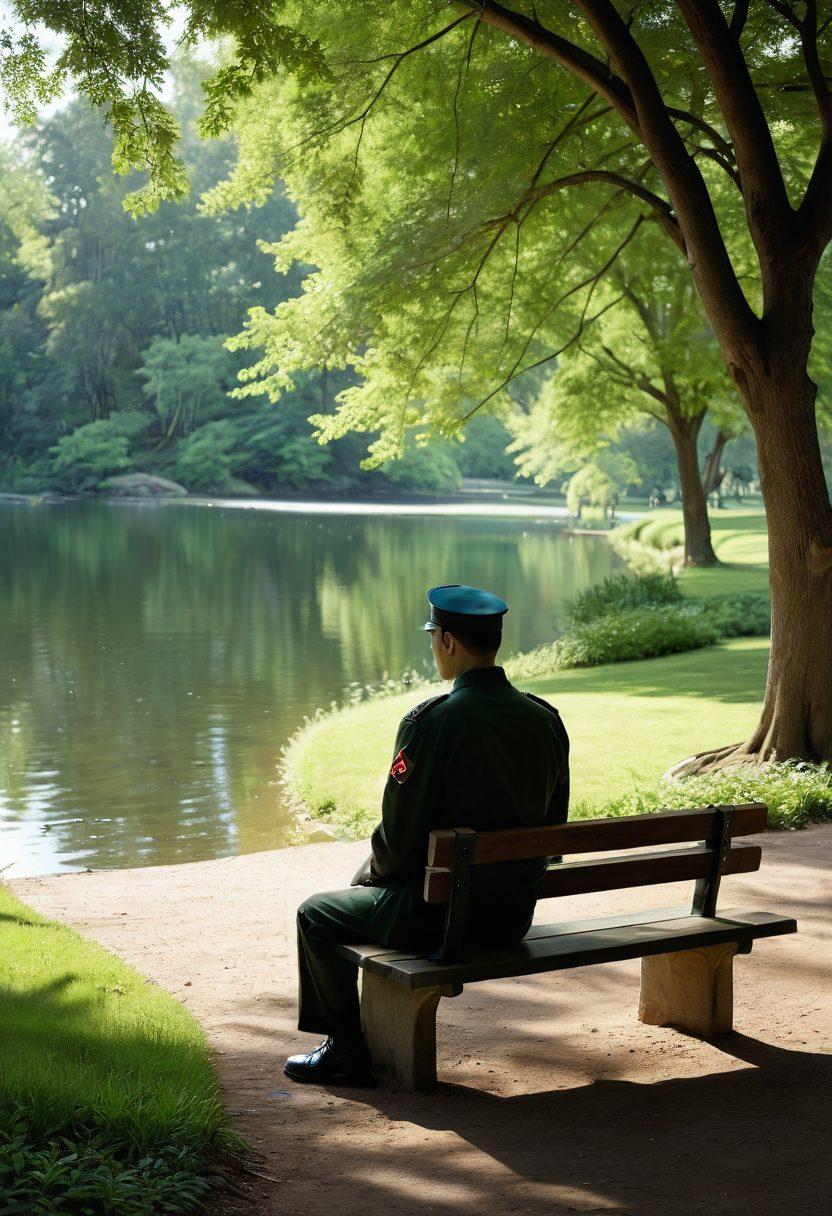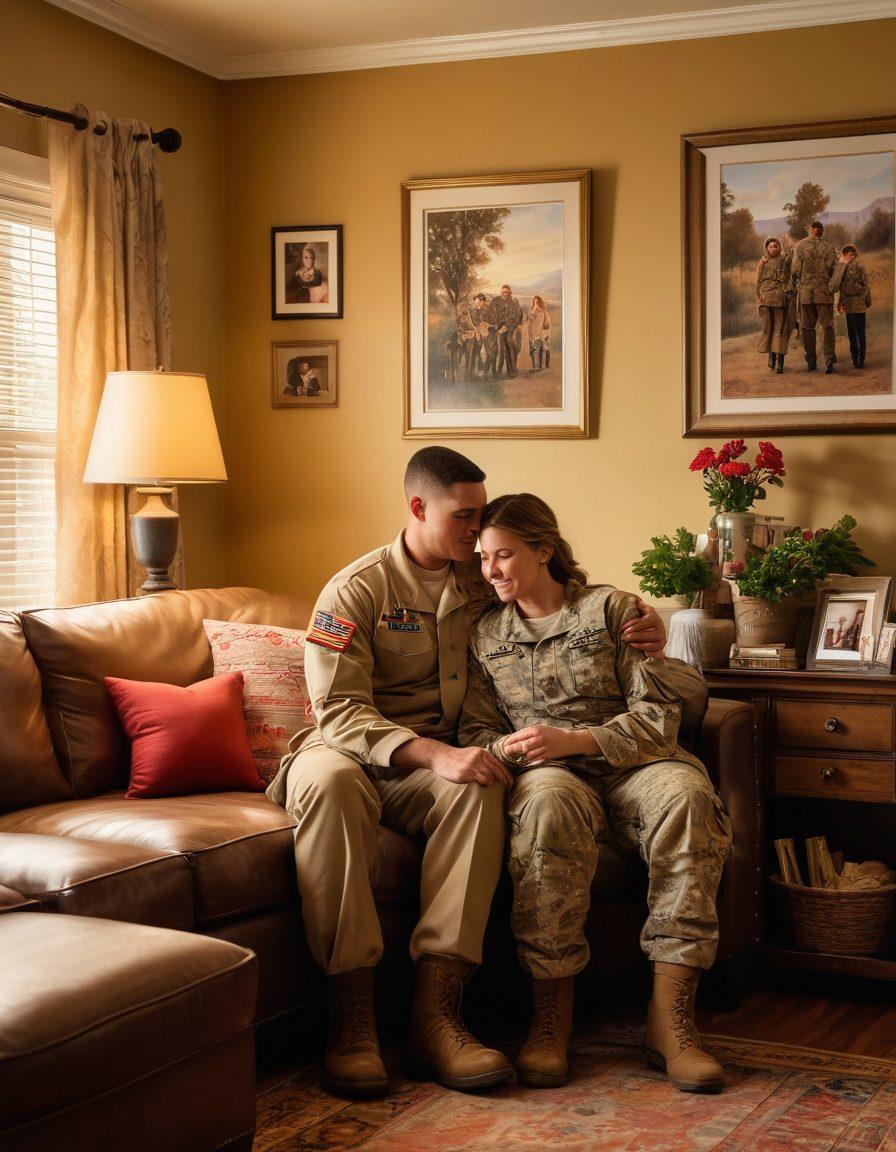Fostering Joy and Well-Being in the Armed Forces: Essential Tips for a Happy Military Life
In the high-stakes world of the armed forces, where every decision can be a matter of life and death, the importance of emotional well-being and unity cannot be overstated. Enhancing military camaraderie and unit morale isn't merely about maintaining discipline and order; it's about fostering an environment where soldiers feel valued, happy, and supported. But how does one build such strong bonds within an army unit? Let's delve into some strategies that can transform the military experience from one of mere duty to one filled with joy and satisfaction.
One of the first steps to fostering a joyful atmosphere within military units is through shared experiences and open communication. Imagine the camaraderie felt after a challenging training session—when every troop member knows they've pushed beyond their limits together. These shared moments create an indelible sense of unity. But beyond the physical challenges, creating space for open dialogue about personal struggles and achievements is vital. Encouraging soldiers to share their stories and experiences helps build empathy and mutual respect, fundamental pillars of unit morale.
Consider the profound impact of regular morale-boosting activities. From team-building exercises to casual social gatherings, these events can significantly enhance soldier happiness and satisfaction. Take, for instance, a story from a seasoned veteran who recalls how a simple BBQ night organized by the unit's leader brought everyone closer. It was during these relaxed moments that genuine connections were made, resulting in a more harmonious and content military community. These efforts don't just foster individual happiness; they weave a stronger, more resilient fabric of military camaraderie.
Moreover, acknowledging and addressing mental health is crucial to maintaining military well-being. Implementing robust mental health support systems can make a world of difference. 'Mental health is as critical as physical readiness,' said a veteran mental health advocate. Ensuring that troops have access to veteran support, including counseling and veteran assistance programs, can lead to more satisfied and emotionally balanced soldiers. It's essential to remember that the emotional and psychological welfare of soldiers profoundly affects overall army morale and effectiveness.
Lastly, fostering a supportive environment extends beyond the service members themselves. The well-being of military families plays a significant role in the happiness and morale of soldiers. Programs aimed at providing support to service member families, whether through family counseling, social events, or educational workshops, can enhance the overall satisfaction and happiness of troops. After all, knowing that their loved ones are content and supported contributes immensely to a soldier's peace of mind and effectiveness on duty.
Mental Health Matters: Crucial Strategies for Soldier Wellness and Support
Mental health is a paramount concern within the armed forces, where the unique demands of military life can often weigh heavily on our brave troops. But what if we told you that there's a pathway to finding joy and satisfaction amidst even the most challenging conditions? Creating a lifestyle that fosters happiness in the military is not a pipe dream; it's a case of implementing some key strategies to uplift and support our soldiers. When we talk about mental health support for the army, it's essential to consider holistic approaches that enhance overall well-being while keeping morale high.
Let's start with the importance of community. Imagine you're miles away from family, facing the rigors of deployment, but surrounded by an army community that feels like an extended clan. Building a strong sense of military camaraderie and connecting with one's military unit doesn't just boost soldier morale; it creates a resilient network that soldiers can rely on. Encouraging army groups to engage in team-building activities, regular check-ins, and open discussions about their mental health can create a joyful environment where everyone can feel content and supported.
Seeking veteran support and veteran assistance is crucial for soldiers transitioning back to civilian life. It’s something that doesn't get the attention it deserves. Many veterans struggle to find satisfaction and happiness due to unresolved mental health issues. Veterans need access to veteran mental health services and soldier wellness programs that offer tailored support. Policymakers and community organizations must prioritize veteran aid so these heroes don’t feel abandoned once their service ends. 'A content soldier is a productive soldier,' and we must ensure they remain supported long after they hang up their uniforms.
'Stronger together' isn't just a catchy phrase; it encapsulates the spirit of military families who endure the trials and tribulations that come with service. Partners, spouses, and children play a pivotal role in maintaining soldier happiness and army morale. Families should be well-informed about military support systems and veteran assistance programs. Offering military support to service member families through workshops, counseling, and social events can significantly contribute to the mental health of our troops. When the home front is happy, the battlefield doesn't seem as daunting.
In the end, fostering a joyful and content military environment is about caring for soldier mental health and soldier well-being with unwavering commitment. Integrated support systems, open conversations about mental health, robust community ties, and active veteran aid are non-negotiables. 'Our troops defend our nation; it's our duty to defend their happiness,' should be the mantra driving military happiness initiatives. Through collaborative efforts, we can create an armed forces ecosystem where our soldiers feel satisfied, supported, and genuinely content – thus fortifying the very foundation of military service.
Supporting the Home Front: The Role of Military Families in Armed Forces Happiness
When we think about the armed forces, images of disciplined soldiers, rigorous training, and battlefield strategies often come to mind. But behind these valiant men and women stand unwavering pillars of strength—their families. Military families play a crucial role in fostering joy and well-being among troops, ensuring that every service member remains happy, content, and mentally sound. Imagine a soldier returning from a high-stress operation to the reassuring embrace of their loved ones; this support can work wonders on their overall happiness.
The role of military family members goes beyond mere emotional support. They often become the backbone of a soldier’s life, helping to navigate the unique challenges that come with military service. From handling household responsibilities during deployments to engaging in veteran mental health initiatives, families ensure that soldiers remain focused and motivated. It's this unwavering support that bolsters military morale, contributing to the overall military well-being and contentment of the troops.
One powerful example of family support comes from the tight-knit army community. When soldiers are away, the army group steps in, helping out with childcare, grocery runs, and even arranging social gatherings to keep everyone connected and joyful. This camaraderie extends beyond active duty, continuing as a form of veteran support, offering much-needed veteran assistance and veteran aid long after the uniform has been hung up. This ongoing support is vital for maintaining soldier wellness and ensuring that veterans feel satisfied and content.
Supporting the home front also means acknowledging the emotional and psychological stresses faced by military families. Programs focusing on soldier mental health and veteran mental health are crucial. By providing mental health support, the army can ensure that its service members—and their families—are emotionally resilient. Soldier happiness isn’t just about the individual but extends to the collective well-being of the entire family unit. When families are well-supported, soldiers in the armed forces are empowered to fulfill their duties with peace of mind, knowing their loved ones are taken care of.
Ultimately, the happiness and well-being of the troops in the armed forces are intricately linked to the strength and support of their families. As military units and communities rally around service member families, they build a robust network that fosters military happiness and satisfaction. So next time you see a soldier standing tall, remember the unsung heroes behind the scenes—their loved ones, ensuring they’re not just surviving, but thriving. Together, they create a joyful, content, and supportive environment that uplifts the entire army morale and nurtures a happy military life.


